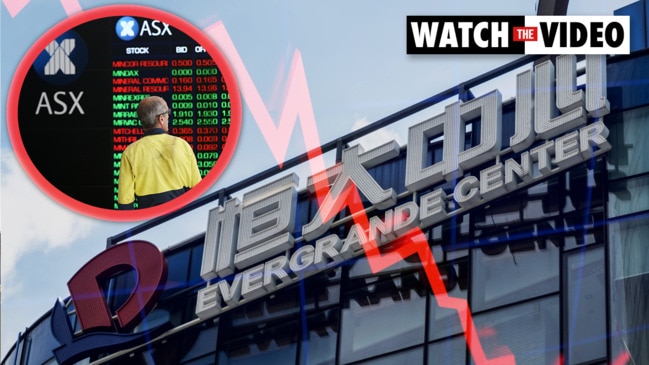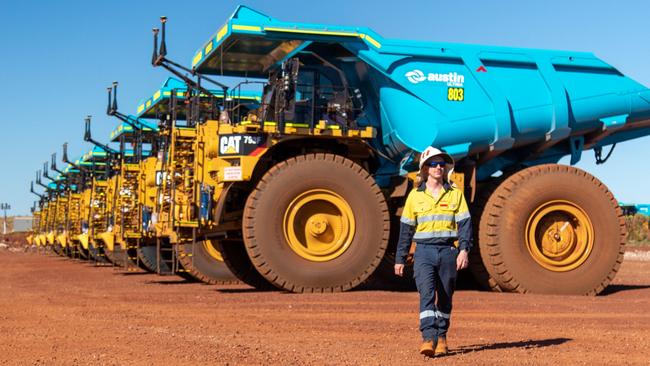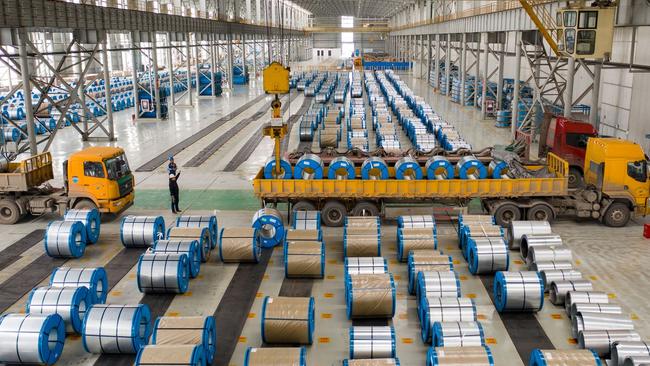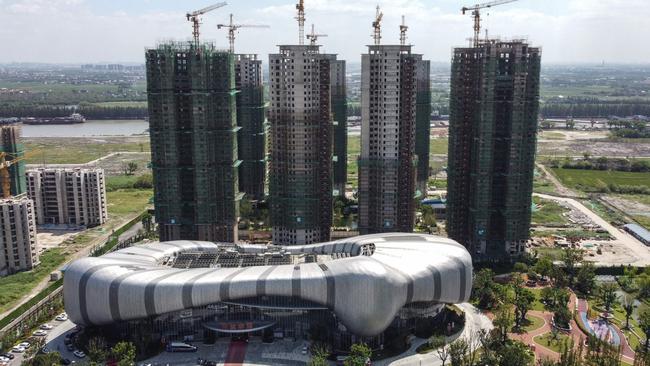Iron ore price drops below $US100 with warnings China could cause disaster for Australia
Iron ore’s price has plummeted and there are warnings Australia’s economy could be on the brink of disaster, due to China’s influence.

Companies
Don't miss out on the headlines from Companies. Followed categories will be added to My News.
Iron ore’s price has experienced a staggering fall to $US90 a tonne causing shockwaves in the share market, as experts warn Australia’s economy is in a worse position than any other nation.
It’s the first time the iron ore price has dipped below the $US100 tonne mark in 14 months.
Australia’s most valuable export has seen its price haemorrhage more than 60 per cent from a record high in May when it hit close to $US240 a tonne.
The collapse in price caused $50 billion to be wiped off the ASX, closing 2.1 per cent and 155.5 points lower on Monday afternoon and hitting a two month low.
Mining company stocks were worst hit with Fortescue and Rio Tinto down more than 3 per cent and BHP soaring down by 4.2 per cent.
Global markets were also spooked as one of China’s biggest property developers teeters on the brink of collapse.
ACY Securities chief economist Clifford Bennett warned there was a very serious US and global financial market collapse risk in play right now.
“This will be worse in Australia than anywhere else. We are in recession that could stretch in to quarter one of 2022,” Mr Bennett said.
“We have alienated our biggest trading partner who will continue to reduce buying from Australia. Iron ore has halved and this means the veil will be drawn back revealing the true state of the Australian economy and it will not be pretty.
“The Australian stock market just gave up two to three months of gains in two days. There will be real world consequences.”

Australia is economically challenged and global stock markets are in retreat, he added.
“China is shopping elsewhere. We have alienated Asia by resurrecting a pro US UK alliance, and we have alienated the EU,” he explained.
“Normal economic activity that may have occurred now, was sucked forward into the previous 12 months by stimulus measures. We have yet to see the worst of the Delta impact. Inflation is getting out of control. The RBA is so confused it has said it will sit on its hands until 2024.”
Australian Strategic Policy Institute director of defence Michael Shoebridge said the dramatic drop in the iron ore price supports China’s interest in “punishing Australia” and cutting iron imports would be one way of achieving this outcome.
However, he noted volumes of iron ore had remained pretty stable this year.
“I saw a report that for the first eight months of this year iron ore exports were about 746 million tonnes and 1.7 per cent down from same period in 2020, while August imports into China were the highest since April and there are likely higher volumes on water right now,” he told news.com.au.
“The price level is at a level where iron ore miners are still incredibly profitable.”
But the “bigger problem” was the state of the Chinese economy, with its second largest property developer China Evergrande facing collapse, which would have a knock on effect on iron ore demand as construction could be cut.

China Evergrande went from global titan to the world’s most indebted real estate developer, racking up a staggering $A432 billion in debt.
Its shares plummeted by more than 10 per cent in trading in Hong Kong on Monday, and is down 72 per cent in Hong Kong this year.
Mr Shoebridge said the group was “clearly unsustainable” in its current structure.
“There is a lot of very unhappy people in China and it’s not just other companies and banks but also Evergrande’s own employees and a large number of Chinese citizens whose financial futures are connected to Evergrande,” he said.
He predicted Evergrande employees and investors would protest, a move that could force the Chinese government to act even though so far it has seemed reluctant to step in and help out the failing company.
“The Chinese government will be willing to live with a bit of investor and employee unhappiness but they won’t want protestors to join up into a larger movement nationally, so they will seek to clamp down on protests and if only the way to do it is to bailout Evergrande, then they will do it,” Mr Shoebridge explained.
“But they may force other Chinese companies to take some of the pain from Evergrande and compel them to invest into it to save it.”
Leadership of Evergrande are also likely to be “invited for tea” with the regulators and police and face corruption charges, he added.

However, Evergrande is not unique problem in China, with the Communist country’s clampdown on the education and tech sector also causing problems with its economy, he noted.
Sweeping regulatory changes over the past months have targeted everything from monopolistic behaviour to data security, rattling share prices and wiping billions off companies’ valuations.
Mr Shoebridge warned that globally markets could be impacted as there are emerging signs of a weakening China economy.
“The story of 2020 was about the strength of the Chinese economy as they were the first to recover from Covid and that drove a whole lot of growth and there looks like a correction now,” he said.
“The property development sector is a part of China's economy in a big way ... and if that part of China’s economy is impacted it means big news for total GDP growth and we can expect a slowdown of China’s economy.”
Originally published as Iron ore price drops below $US100 with warnings China could cause disaster for Australia





